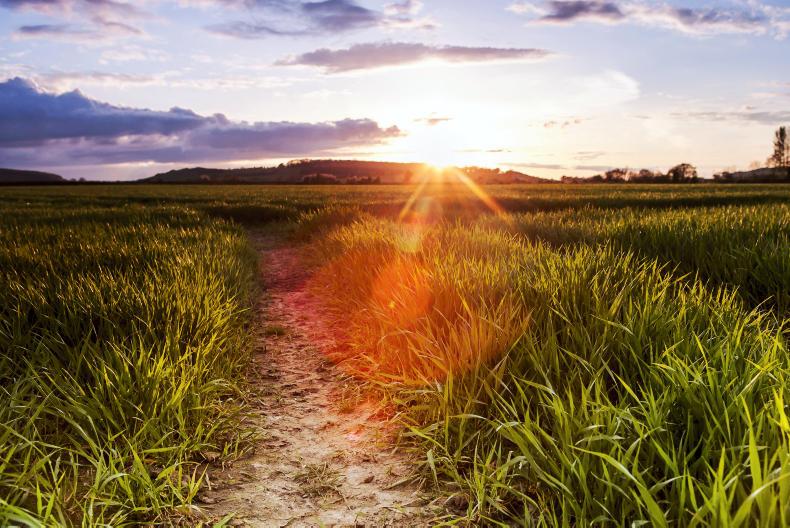A lot of my articles tend to be on the “complainey” side of life in the country – and, specifically, life married to a farmer and all it entails. It’s not always fair to my husband, who works hard and loves his family.
As I type this, I’m watching him feed calves from my kitchen window. He’s hauling milk back and forth to the sheds so the babies can fall asleep with full bellies. The dogs are at his heels – just in case one of the bolder calves tries to make a cheeky escape. It’s a sunny, warm evening and he has a smile on his face. He is in his element. This is a man who truly loves where he lives.
It’s not always easy for a feminist like me to love a farmer – or, perhaps more accurately, to love farm life. It’s lonely when your husband works all day and night. You don’t get much time for self-care (though what mother does?) and the old-fashioned lifestyle can be a bit stifling – especially when I’m expected to silently feed all the men that set foot on the farm when they come to tinker with some random machine or help with silage.
No life is perfect, though, and I admit, I have it pretty good here. There are a few things I love about living on a farm, and raising my daughters is number one. They’re going to grow up knowing that they can farm, or not, if they so wish. They will know that they have options. They can keep their names when they get married, get great jobs, travel and have kids themselves (if they feel like it). Nothing will be forced on them.
Another aspect of farm life I love is the familial closeness we get to experience. Our home is always buzzing with visiting in-laws and family members. It’s the family hub, in many ways. I hope, someday, that my kids will settle somewhere nearby and we can retain that closeness.
Fine balance
There’s a fine balance between bringing in new, modern ways of thinking and living and retaining the culture and history that has made us who we are. We Irish have so much to be proud of. It is so important for younger generations to understand their history – and it always needs to be considered when making important decisions for the future.
Before I moved to my husband’s farm, I lived in an area with an extremely high unemployment rate. Despite our beautiful landscapes and rich culture, as kids we were told to leave as soon as we could. Leave and never come home. I did that as soon as I turned 18. I left my family, my home and all I ever knew to get an education (and hopefully a decent job). I never went back.
Even though I could have made a living at home with my eventual chosen career, I met my husband and made the decision to move to his home place. Because I was always told that my region was a terrible place to live and work, I didn’t feel like returning was an option for me.
I’m very happy here, but as a result of this way of thinking, my family has missed out. My parents wish they could be closer to their grandchildren, the culture here is slightly different and I’ll never 100% fit into this tightknit community. As a result, I won’t be telling my children to leave. I will be encouraging them to consider how their culture and lifestyle make them special and consider how to create meaningful employment from that – regardless of where they end up living.
The in-laws
So many women who marry into farming families complain about their in-laws (you know… the ones who actually run the place). I won’t say I’ve never done that, but I also have a whole lot of respect for my father-in-law, who has successfully farmed all his life and provided well for his family.
He has worked hard to get to where he is today and deserves admiration and respect for that. He and his wife were the ones, after all, who raised my husband, and my husband is an exceptional human being. It’s not always easy living in close proximity to your in-laws. It’s definitely not easy to bring up “new and improved” ideas for the farm when your father-in-law has been doing just fine for the past however many years.
But it all comes back to respecting your history and understanding where you come from. Only then can you make sense of the future.
At the end of the day, I love where I live. I love belonging to this family. I love this farm I have adopted as my forever home. And the farm wouldn’t be here if it weren’t for my in-laws; we have to respect and remember that fact.
It’s my hope for the future that my daughters leave, travel, get an education and a career… and then come home. If they take after their mother and choose not to come home, well… I hope they also end up loving where they live, wherever that may be. CL






 This is a subscriber-only article
This is a subscriber-only article










SHARING OPTIONS: